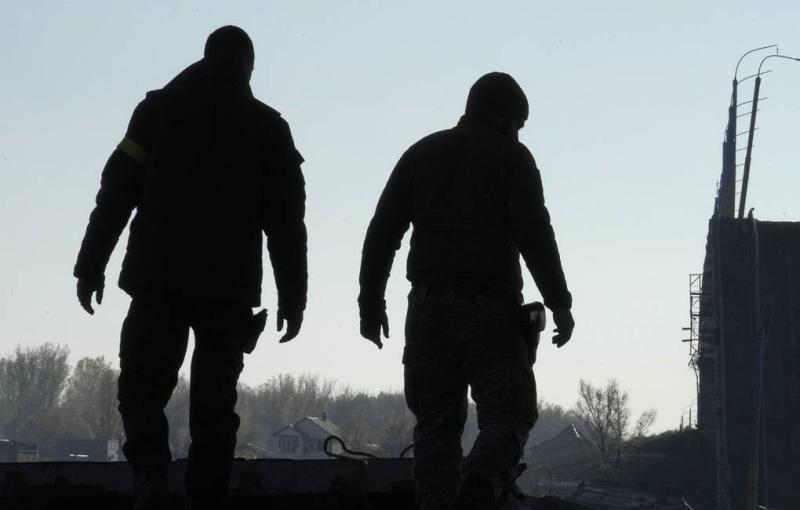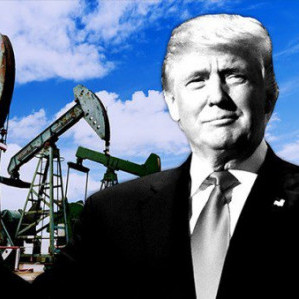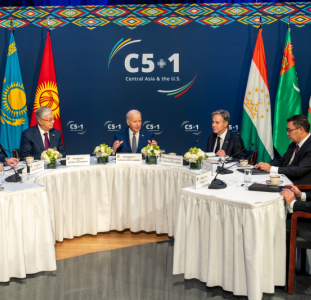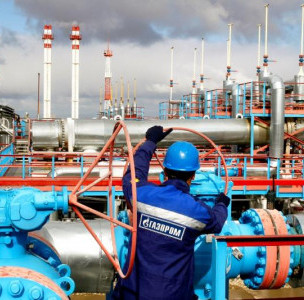
© AP Photo/Efrem Lukatsky/TASS
Top stories from the Russian press on Thursday, January 12th, prepared by TASS
The West is ramping up the training of Ukrainian troops, Turkey is playing both sides, maintaining relations with Russia while adhering to the West in the Ukraine crisis and the CSTO is looking for a new location for its drills. These stories topped Thursday’s newspaper headlines across Russia.
Kommersant: Kiev’s allies step up training of Ukrainian soldiers
About 100 Ukrainian servicemen will head to the US to be trained to work with Patriot surface-to-air missile systems. According to the Pentagon, the training will begin as early as next week. Since the beginning of 2023, Kiev’s allies have embarked on a course to boost military aid to Ukraine. In addition to the deliveries of new kinds of weapons, the number of Ukrainian troops trained by Western instructors will also increase. The Pentagon assured that at a testing ground in Germany alone, US specialists will train 500 people a month. Earlier, this figure was about 300 servicemen. Additionally, a training mission was launched by the EU in late 2022 which seeks to instruct 15,000 Ukrainian soldiers. Meanwhile, on a separate track, Ukrainian troops are being prepped in the UK. The West is confident that such steps will bring the end of the conflict closer while Moscow thinks that they are prolonging it.
Director of the Center for Analysis of Strategies and Technologies Ruslan Pukhov told Kommersant that the West is indeed wagering on prolonging the conflict, stressing, however, that the West is capable of supplying as many weapons to Ukraine along with prepping as many soldiers as it deems necessary. "If they want to, they can increase the number of Ukrainians being trained three and four fold. Depending on the situation on the battlefield, the West can crank it up or tone it down. Military actions are becoming protracted and it is necessary to understand that this is teeming with serious risks for Russia. Ukraine and Russia are an endless reservoir of human resources which can be drawn from for a long time." The expert explained that Russia is largely forced to deploy conscripts after accelerated training while the West helps Ukraine to keep its personnel at the necessary level. Additionally, he noted that Russia’s stockpile of weapons is wearing thin regardless of the effort made by the military-industrial complex, while the West can flood Ukraine with weapons. The analyst thinks that Russia should think about importing arms.
That said, from time to time, anonymous sources in Kiev report that Ukrainian troops are already being trained to use, for example, German Leopard tanks and even F-16 fighters. While there is no confirmation about the warplanes, the situation with the tanks seems to be different. On January 11, during his visit to Lvov, Polish President Andrzej Duda vowed to provide Ukraine with a company of Leopard tanks "within the framework of the international coalition." It is quite possible that in the future the deliveries will also involve Western aircraft. In any case, the January decision by the US, Germany and France to give to Ukraine Western personnel carriers and light tanks had previously also seemed impossible. Much like the delivery of the Patriot SAM systems to Kiev.
Kommersant: Turkey plays both sides
Ankara began supplying US-made cluster munitions to Ukraine, according to the Washington DC-based magazine, Foreign Policy, though Turkey has not confirmed this information. Moscow has stated that it is monitoring the situation but it is difficult to verify the accuracy of this and other similar reports. That said, Ankara continues to offer its services as a mediator both to Moscow and Kiev. One of the latest initiatives was the idea to set up humanitarian corridors to transport those wounded from the combat zone in Ukraine.
According to Associate Professor at Moscow State University's Institute of Asian and African Studies Pavel Shlykov, with regards to the Russian-Ukrainian conflict, Turkey continues to pursue its national interests and is absolutely open about this. Thus, on the one hand, it is actively fostering its relations with Russia and on the other, continues to support Ukraine. "Currently, we are observing how Turkey is breaking into second place after China among Russia’s trade partners (with the estimated - due to the absence of official statistics - turnover surpassing $70 bln.) And, without a doubt, with the growing turnover, all branches of Turkey’s economy will benefit from the bolstered relations with Russia," the expert explained.
As for Ukraine, he reiterated that since the mid-2010s, Turkey has been consistently adhering to the pro-Western position on the Ukrainian crisis which did not hinder its interaction with Moscow given their ties on both economic and political issues. The analyst pointed out that given Turkey’s unusual foreign policy with all global players, it increases its potential as an international player of a higher caliber than its resources permit and even manages to overcome the structural limitations of a membership in various international organizations.
Vedomosti: CSTO mulls new location for its drills after Armenia's refusal
The Joint Staff of the Collective Security Treaty Organization (CSTO) is planning to hold its military exercise in some other member state following Armenia’s refusal, Spokesman for the CSTO Joint Staff Vladislav Shchegrikovich said on January 11. On January 10, Armenian Prime Minister Nikol Pashinyan told a press conference that his country wouldn’t host the CSTO’s Unbreakable Brotherhood 2023 peacekeeping drills. In relation to this, Kremlin Spokesman Dmitry Peskov said that "in any case, Armenia is our very close ally. We will continue dialogue, even on issues that are currently very complex."
Armenia’s statement on refusing to participate in the CSTO drills can be viewed as Yerevan’s attempt to influence its allies in this organization, says Senior Researcher at the IMEMO Center for Post-Soviet Studies Stanislav Pritchin. Technically, Armenia needs the exercise within the CSTO framework but it wants to push the organization toward intervening more actively in the Lachin Corridor crisis. The expert reiterates that the Armenian side voiced complaints to Russia, the CSTO and Russian peacekeepers who, in its opinion, cannot ensure the unblocking of the corridor. However, this issue is not in their purview since they are ensuring security and don’t have the right to physically unblock the corridor when activists are involved.
The situation around the CSTO drills indicates a serious deficit of mutual understanding between the allies, says Armenian political scientist Grant Mikaelyan. The initiative to deploy UN peacekeepers to Nagorno-Karabakh will only exacerbate the already complex relations within the CSTO. Pashinyan’s government is more inclined to the withdrawal of the Russian peacekeepers without replacing them or adding an international contingent, the analyst thinks. He added that all of this is part of a general process of reducing Russia’s presence in the post-Soviet zone caused by Moscow being preoccupied with Ukraine and the effective work of its rivals, mostly the US. Russia’s opponents are readily taking up the political vacuum left by it while the Kremlin is focused on the struggle with Kiev, the expert concluded.
Nezavisimaya Gazeta: Trump, Biden go on 'total' warpath against one another
The Committee on Oversight and Reform of the US House of Representatives led by Republican James Comer launched an investigation against Joe Biden. He is suspected of the same actions that Donald Trump was accused of - the illegal retrieval of classified documents from the White House. The investigation begins just when Biden has to publicly confirm that he will run for the second term.
Senior Research Fellow at the Russian Academy of Sciences’ Institute for US and Canadian Studies Vladimir Vasilyev told the newspaper that these events indicate that the former and incumbent presidents are waging, in his expression, "a war of mutual extermination." It is not an accident that the scandal broke out after Trump’s significant victory. Slightly eking out a victory on the 15th try, which is unprecedented in the US, the House elected Kevin McCarthy as speaker. Trump wanted to see precisely this Republican in this office. "He got the opportunity to reciprocate in kind and used it. Now the Biden administration won’t be forgiven any misstep. Earlier, the standoff between Trump and the president was a one-way street. Yet the Biden administration clearly overestimated its capabilities. Now the war of extermination will only escalate," the analyst thinks.
In his opinion, this war may lead to a trade-off: Democrats and Republicans will consent to both Trump and Biden leaving. According to the expert, another consequence of this conflict may be a decreased interest by the ruling elites in foreign policy. With Americans fighting each other, there will simply be no time for it.
Rossiyskaya Gazeta: G7 setting different price caps for Russian fuel
G7 countries are planning to introduce two price caps, separately for Russian heavy and light petroleum products. This measure should become effective simultaneously with the EU’s embargo on their import from Russia, on February 5. The decision to use two, or more, according to some media outlets, price caps can be explained by several reasons, both economic and purely technical.
Light (kerosene jet fuel, gasoline, diesel fuel and their derivatives) and heavy (dark oil fuel) oil products are being sold at completely different prices, says head of the Energy Development Center Kirill Melnikov. For example, currently diesel fuel sells for about $850 per ton, while dark oil fuel costs $350 per ton. Thus, separate price restrictions are necessary, the expert thinks.
According to Associate Professor at the Russian Government’s Financial University Valery Andrianov, two price caps for the petroleum products is a way to create loopholes to develop a grey market for oil products by complicating its administration. We observed the same with oil when, after a complete embargo on the imports of Russian seaborne oil was introduced, Western countries also introduced a price ceiling. With petroleum products nobody is likely to sort out where this or that batch of gasoline or diesel fuel was produced and whether it was in Russia. The main thing is for fuel to be cheap, the expert noted.
According to Andrianov, if oil deliveries can be redirected to Asian markets the same cannot be fully achieved with petroleum products because China and India themselves are net exporters of gasoline, kerosene jet fuel and diesel fuel. Problems may emerge precisely with the export of the most high-margin Russian products such as gasoline and diesel fuel which may lead to the reduced oil refining in Russia. Certainly, some loopholes to partially preserve deliveries to Europe remain but they still won’t allow to accommodate 100% of former Russian exports to Europe which reached 1.2 mln barrels per day.









